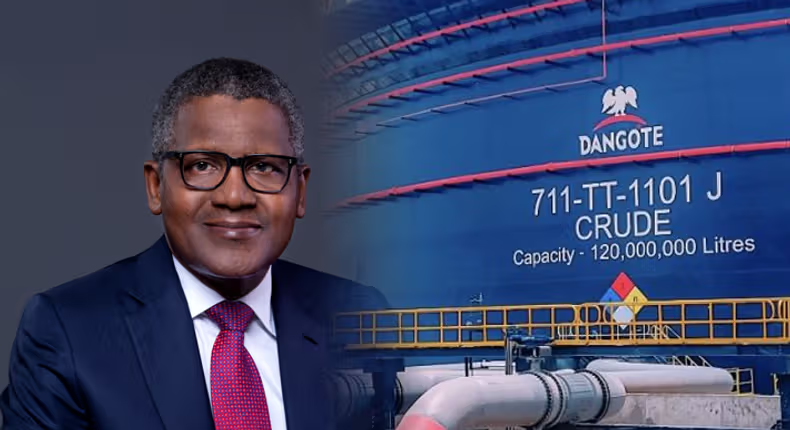Africa’s richest man and President of the Dangote Group, Alhaji Aliko Dangote, has cast serious doubt on the possibility of Nigeria’s government-owned refineries Port Harcourt, Warri, and Kaduna—ever working again, despite the billions of dollars reportedly spent on them.
Speaking during a visit by members of the Global CEO Africa group from Lagos Business School to the Dangote Petroleum Refinery in Lekki, Lagos, Dangote expressed skepticism over any hope of reviving the facilities, which are managed by the Nigerian National Petroleum Company Limited (NNPC).
Dangote claimed that about $18 billion had been sunk into the refineries over the years without any tangible results. He argued that the turnaround maintenance and repeated rehabilitation efforts amount to retrofitting outdated facilities beyond repair.
He recalled how his company had once acquired the same refineries during the administration of former President Olusegun Obasanjo in 2007, only to return them months later after the government of President Umaru Musa Yar’Adua reversed the transaction.

“The refineries we bought in 2007 were producing only about 22 percent of PMS (petrol). We had to return them to the government due to a change in administration. They were convinced the plants would work. Today, nearly $18 billion has been spent on them, yet they remain nonfunctional. I highly doubt they will ever work,” he said.
Dangote compared attempts to revive the aging infrastructure to trying to modernise a 40-year-old car with new technology, stating that even a new engine would be incompatible with such outdated systems.
His comments follow similar remarks made by former President Obasanjo, who has repeatedly said that the refineries were already beyond salvage during his tenure. Obasanjo had tried to involve international oil firms, including Shell, in their operation, but the companies declined.
Obasanjo also revealed that Dangote and his associates once paid $750 million to acquire the refineries, a deal later cancelled by President Yar’Adua. According to Obasanjo, the refineries’ value has since plummeted, and they may not fetch even $200 million today if sold as scrap.
“I told Yar’Adua at the time that the NNPC couldn’t run the refineries,” Obasanjo recounted. “When you want to sell them, no one will offer even $200 million. That’s exactly where we are now.”
Criticism of the NNPC’s handling of the refineries has intensified in recent months. Two of the three refineries Port Harcourt and Warri were shut down again despite official declarations that they had resumed operations. The Kaduna refinery remains inactive.
The Manufacturers Association of Nigeria has joined calls for full privatisation of the facilities, describing them as a burden on the national economy. Some industry stakeholders have gone further, suggesting the refineries should be sold as scrap and the proceeds reinvested in modular refining projects.
In January, Obasanjo reiterated that more than $2 billion had recently been spent on the plants with no results. “If Shell tells me something won’t work, I believe them. If anyone says the refineries are now working, why are they depending on Dangote?” he said, pointing to the functionality of the privately-run Dangote Refinery.
The Dangote Refinery, which has a processing capacity of 650,000 barrels per day, has already dedicated over 50 percent of its output to petrol far exceeding the production levels of the NNPC-owned refineries when they were operational.
Despite multiple rounds of funding including $1.4 billion approved for the Port Harcourt refinery in 2021, $897 million for Warri, and $586 million for Kaduna none of the three refineries have proven commercially viable. Additional figures show that N100 billion was reportedly spent on refinery rehabilitation in 2021 alone, with an average of N8.33 billion spent monthly. Between 2013 and 2017, over $396 million was allocated for turnaround maintenance.
As of the time of this report, NNPC could not be reached for comment. The corporation currently has no official spokesperson, and multiple calls and messages to its listed contact lines went unanswered.




